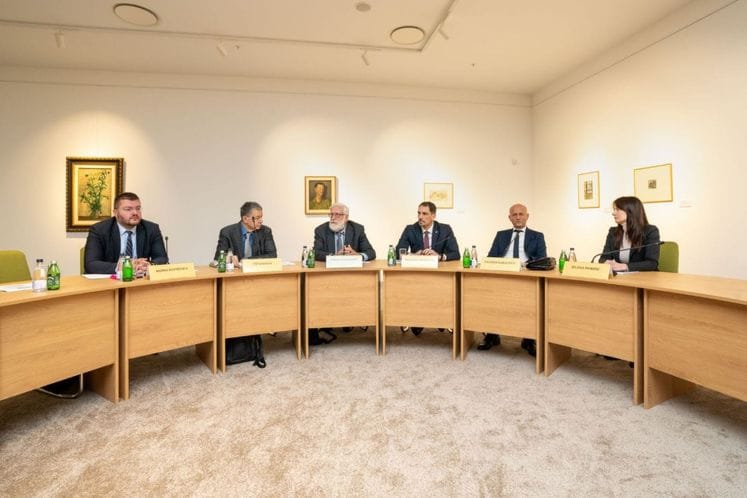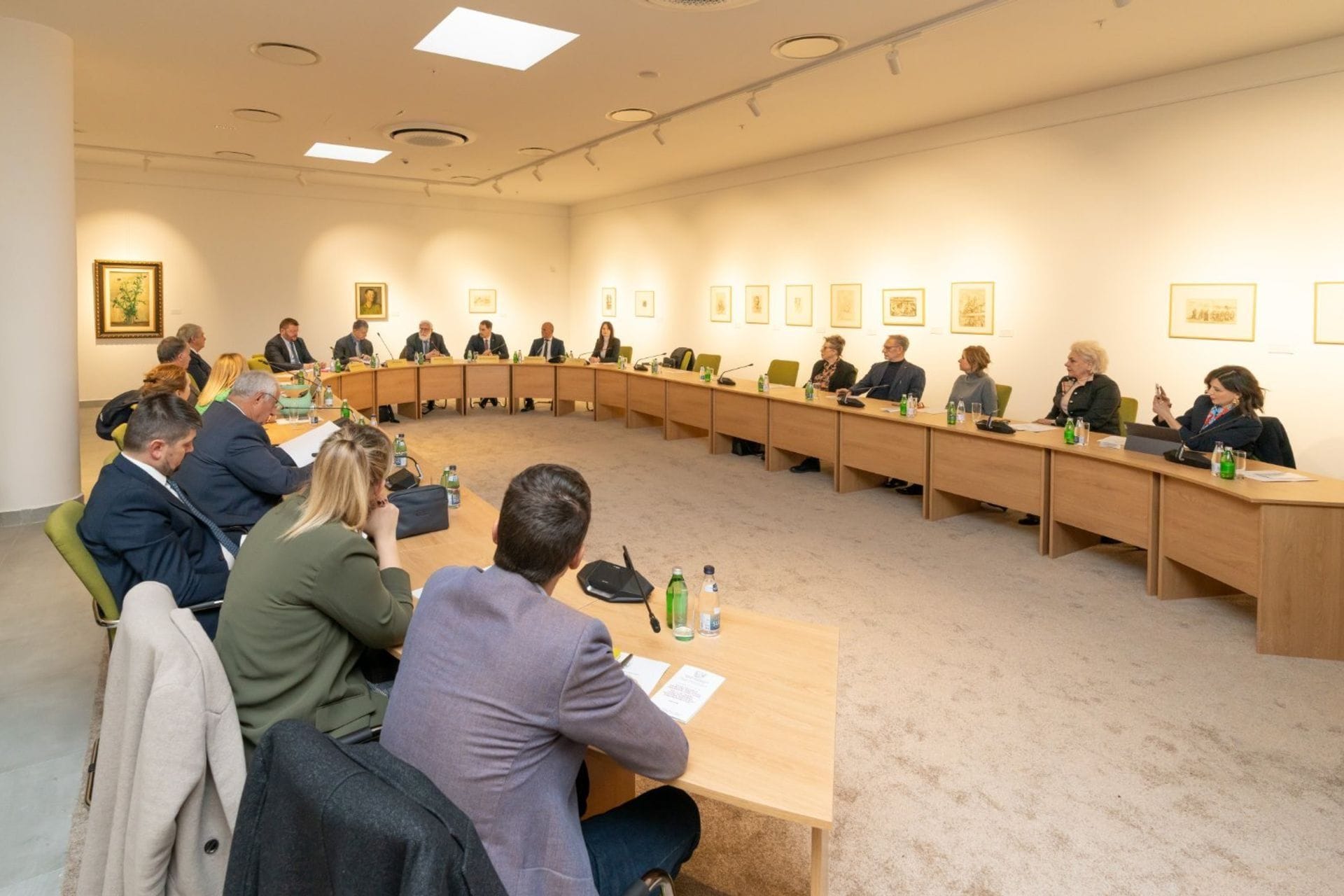- Government of Montenegro
DPM Koprivica participates in roundtable discussio...
DPM Koprivica participates in roundtable discussion on Montenegro’s Criminal Code reform

Deputy Prime Minister for Political System, Justice, and Anti-Corruption Momo Koprivica took part in a roundtable organized by the Montenegrin Academy of Sciences and Arts titled "Two decades of Montenegro's Criminal Code – Does Montenegro need Criminal Law reform?"
During his address, Koprivica highlighted the continuous advancements in criminal legislation implemented by the Government and the Ministry of Justice. These improvements include aligning the Criminal Code with international standards and introducing new criminal offenses significant for combating corruption. Examples include offenses related to misuse in public procurement, bribery in bankruptcy proceedings, misuse in privatization processes, and fraud in business activities.
Koprivica emphasized the importance of a systematic and expert-driven approach to reforming criminal legislation. He noted the need for in-depth analysis of both general legal principles and specific criminal offenses, including the reconsideration of penalties. In Montenegro’s current legal framework, he argued that greater emphasis should be placed on the likelihood of penalties being enforced rather than on their severity.

Potential offenders are deterred more effectively by the certainty of punishment than by the harshness of prescribed penalties, Koprivica stated. He noted persistent challenges, including judicial independence, resource constraints, insufficient training, and limited capacity within the judiciary, which undermine the effectiveness of sanctions.
Koprivica further stressed that criminal legislation cannot be viewed as the sole tool for preventing socially harmful behaviour or safeguarding societal values. It must complement broader mechanisms of social control available in democratic societies, including education, social policy, anti-corruption measures, and other legal fields.
While Montenegro's Criminal Code provides a solid foundation and standards for the application of criminal law, significant issues persist in its implementation. Koprivica identified areas requiring improvement, including the enhancement of judicial efficiency, better victim protection, juvenile rehabilitation and prevention measures, reforming corporate criminal liability, and strengthening the fight against organized crime and corruption.
He also called for a review of specific provisions of the criminal procedure code, proposing measures to prevent abuses of legal processes, such as interference with evidence, disruption of proceedings, and procedural delays. He underscored the importance of aligning these reforms with best practices from comparative legal systems.
On behalf of the Government of Montenegro, Koprivica commended the Montenegrin Academy of Sciences and Arts for organizing this event, recognizing it as a valuable contribution to the critical examination of the foundations and future directions of Montenegro's legal system reforms.
